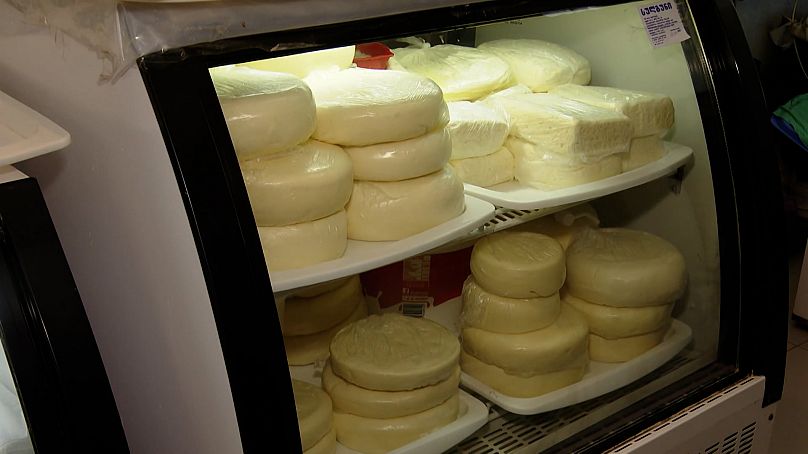Experts warn that around 95% of dairy products on the Georgian market come from unregistered factories, raising huge concerns for Brussels.
A land of mountains and shepherds, Georgia is naturally the land of cheeses.
However many Georgian cheese exports to Europe are banned because production regulations do not meet the criteria required by Brussels. Around 95% of dairy products sold in Georgia come from undeclared manufacturers.
"We must determine if milk carries diseases like anthrax, mastitis, or brucellosis. Awareness must be raised against contaminated milk so it is declared unacceptable for the Georgian market. Surprisingly, regulatory bodies fail to take responsibility", Ana Mikadze-Chikvaidze, President of the Georgian Cheese Producers Association told Euronews.
The unregulated nature of the country's cheese production has been a headache for those in the business. Registered milk and cheese producers find themselves competing with manufacturers who are less scrupulous about standards.
"Our stored cheese costs €8, while our unregistered competitors charge between €5 and €6," says Resan Basiladze, head of production at a cheese dairy.
The National Food Agency disputes the presence of untested dairy products at farmers' markets. It maintains that control mechanisms cover all sectors.
Ana Gemazashvili, the deputy head of the food safety department said: "The registration of companies on agricultural markets is not compulsory, but family production entities must register with the National Food Agency and comply with certain regulations".
Vakhtang Kobaladze however, a programme coordinator at the Georgian Centre for Strategic Research and Development disputes this.
"The National Food Agency lacks the resources to effectively monitor the Georgian market, including dairy products. If controls do not become a government priority, inspections and laboratory studies will be limited".
Consumers looking to save money by buying unregistered products should consider the potential long-term cost to their health, especially if they contain milk powder.
Brucellosis, in particular, can be transmitted to humans through the consumption of milk. In 2021, 133 people contracted the disease in Georgia, almost as many as in the whole of the European Union.












